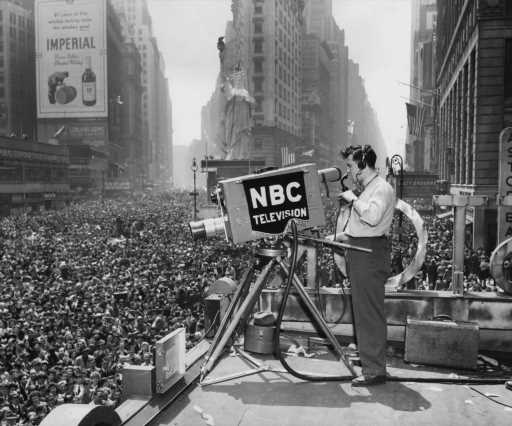When Warner Bros Discovery CEO David Zaslav wanted to make a forceful first impression at the company’s upfront last spring, he used words designed to dazzle the audience of ad buyers.
The newly merged company, he declared, would now stand “shoulder-to-shoulder” with the broadcast networks in terms of scale and reach. Three decades after Fox became the fourth major network, Zaslav said, WBD “makes the number five.”
Today’s news out of NBCUniversal suggests that not everyone is as eager as Zaslav to be part of the broadcast club. A person familiar with NBCU conversations confirmed to Deadline that execs are considering a plan to potentially ditch an hour of primetime programming each night and hand back the 10 p.m. block to affiliates. The Wall Street Journal had the first report on those deliberations.
No final determination has been made, and the earliest a move could happen would be 2023.
The news followed the similarly stark outlook for the CW now that it is mostly owned by Nexstar Media Group. Execs at Nexstar told investors last week that the company would look to turn a profit on the CW by 2025. “It’s no secret that the CW is not profitable,” CFO Lee Ann Gliha said, “but this is not typical for fully distributed broadcast or cable networks. In fact, according to SNL Kagan data, no other broadcast network operates at an ongoing loss.”
Tom Carter, president and COO of Nexstar, said the company would be “unlike other broadcast network owners” in its financial rigor and promised “lower unscripted costs” and a shift away from the Riverdale network’s signature scripted lineup.
How Social Media Is Reacting To NBC Possibly Giving Up Primetime Hour: “Bring Back Jay Leno”
Costs are a creeping concern for all broadcast network owners, especially as they look to feed their streaming ambitions. NBCU’s Peacock, which launched two years ago, is doubling its spending on content to $3 billion this year, ramping up to $5 billion in the coming years. If NBCU were to scale back in primetime, it could save money it has previously put into original shows intended for broadcast air, in keeping with secular declines in the pay-TV bundle and linear ratings.
Accelerating cord-cutting and the explosion of streaming options have robbed the broadcast nets of much of their mojo outside of sports and non-scripted programming over the past decade. As media companies have restructured to reflect blended focus on streaming, cable and broadcast, there’s no longer a sense of a lead dog pulling the sled.
As far as how advertisers will process the changes to the legacy broadcast landscape, Brian Wieser, global president of business intelligence for major media agency GroupM, doesn’t see any particular cause for alarm. A sizable chunk of the TV advertising business, which has shrunk from its highs north of $70 billion several years ago, has simply migrated to streaming and that is apt to continue. Peacock is now a billion-dollar-a-year ad business, a plateau passed by Paramount’s Pluto TV and Hulu some time ago. Disney+ and Netflix plan to introduce advertising over the coming months, and HBO Max added a cheaper ad tier last year.
“It sounds like it’s a big deal, and some people will have that reaction to it,” Wieser said of NBC’s internal discussions. In reality, though, such a move would represent a redistribution at the margins. “The thing that really matters to a marketer is: Is there is a continuing investment in programming that is ad-supported? The answer is clearly yes.”
Citing numerous examples of NBCU-esque moves in the media business of late, including at Warner Bros Discovery, Wieser added, “Defunding traditional networks in order to fund streaming has been going on for a number of years now.”
Must Read Stories
Does Potential Primetime Retreat Foreshadow More Changes To Legacy Model?
The Dish: ‘Lego’ Producer Dan Lin In Pole Position For Top DC Films Spot
‘Resident Evil’ Series Canceled By Netflix After One Season
‘Summering’ Director James Ponsoldt On His Movie Influences
Read More About:
Source: Read Full Article




